«TacMed Devices Are Valued Like Gold»
Person in Focus: sergeant Alina Sarnatska, a combat medic in the Ukrainian Army. Prior to Russia’s invasion of Ukraine, Alina worked for the political party Demokratychna Sokyra and as a researcher at the Uman university. The European Resilience Initiative Center spoke to Ms. Sarnatska, 35, about why she volunteered for the Army, her combat experiences during the first year of the Russian invasion, and how the West can help Ukrainian fighters.
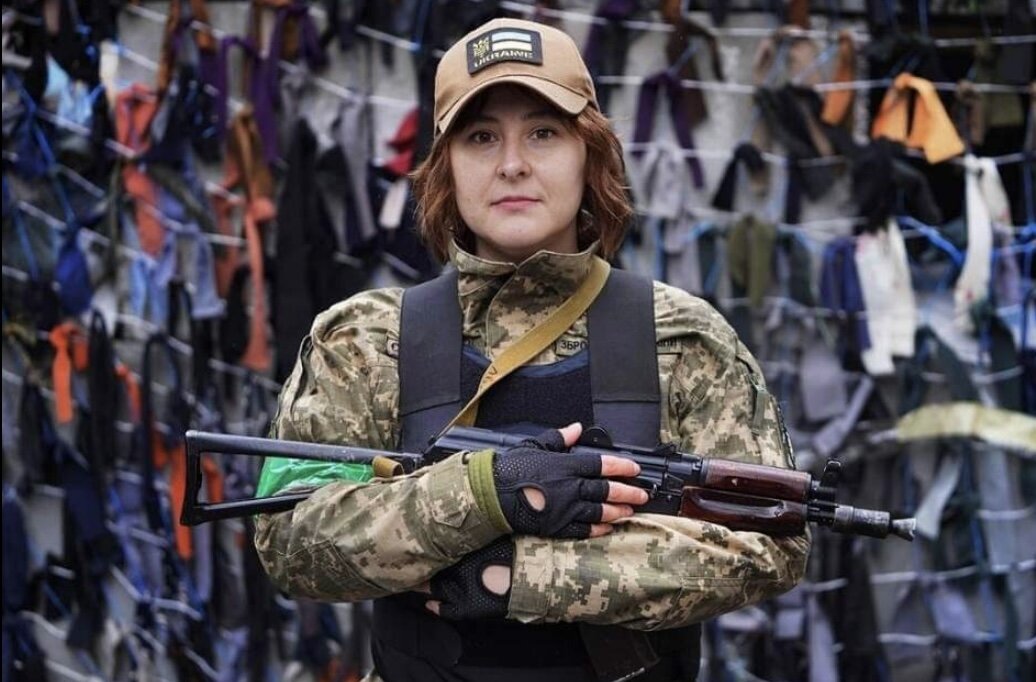
Photo provided by Alina Sarnatska
You had no military experience prior to the full-scale invasion. How did you join the army?
I volunteered on the 5th of March. My army life will turn one year soon. I first came to a military recruitment office, voyenkomat, in Kyiv but got turned down, as I was not a full-licensed medic at that time. My friends advised me to approach a military unit directly. You should understand, the situation in Kyiv was very chaotic at that moment. We knew nothing about what was going on, the Russians were staying close to Kyiv. When I came to a military unit headquarters, there were multiple volunteers there. I approached the chief medical officer, who briefly inquired me about my skill sets but asked no further questions. I signed my papers to join the army on the same evening.
I imagine that this experience differed significantly from your previous work life.
I was a political activist prior to the war. I worked for the political party Demokratychna Sokyra [Democratic Axe] and worked on the topics of protection of the rights of sex workers, legalization of sex work, and civil society cooperation. I also worked as a development manager at the non-government organization Enei and a junior researcher at a university in Uman, focusing on social studies. The army was a totally new experience for me. As a result, I had a naïve understanding of what I will be doing there. I signed up for a territorial defense unit, and I thought that I would be patrolling the city where I lived. The reality was completely different, it was a real army experience. I also could not imagine that the war will last for so long. It is almost a year now [the interview was taken on the 23rd of February]. I did not know that I would not be able to change my unit or to quit. I thought that we would soon win the war, and I would go home. I kept asking my former colleague every day: When will the war end? When will we win? At first, I hoped that we would win next week. Then, next month or in two months. It is one year now since the start of the full-scale invasion, and it will last even longer.
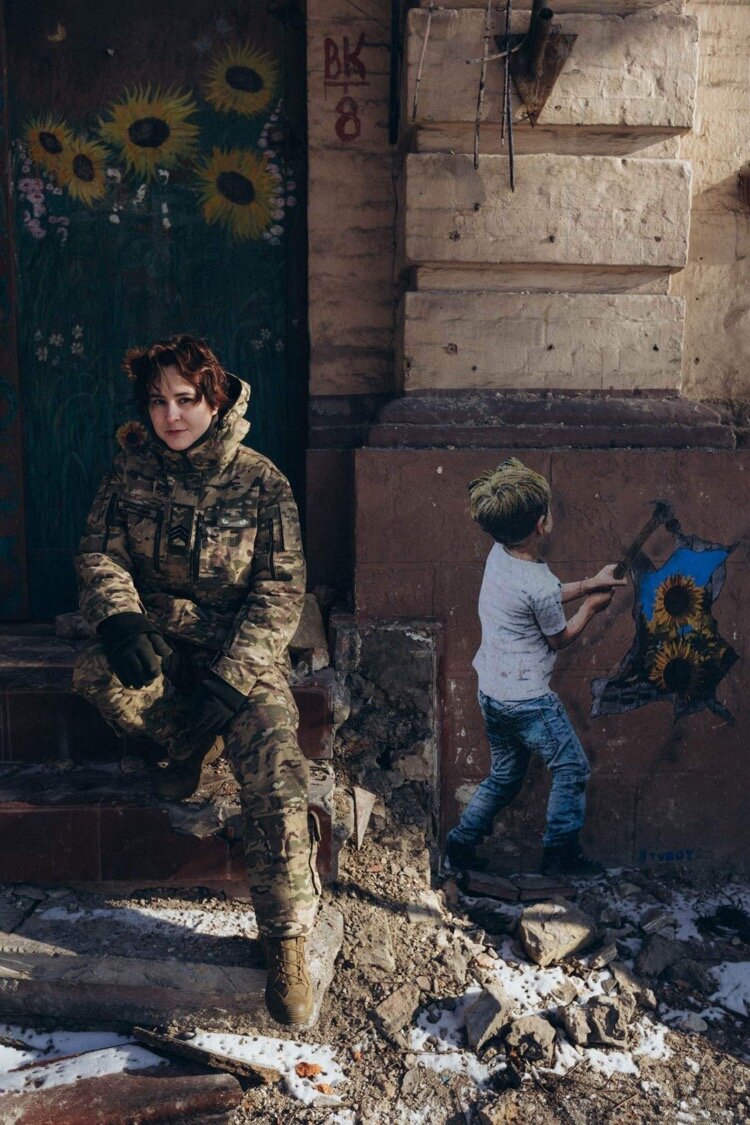
Photo provided by Alina Sarnatska
If you knew that the war would last that long, would you have changed your mind about joining the army?
No. I knew what kind of war we were fighting, and I wanted to protect my country. The only thing I did before signing the papers was talking to my partner to explain my decision. What I do regret now is how much pain my decision caused to my relatives and friends. From a certain point of view, they are in a much more difficult situation than I am. They do not know if I am fine, when I will be able to call or text them. It caused a lot of suffering to my partner, to my best friend. My mother still does not know that I am in the army. She is 72, and I decided not to tell her. None of my relatives told her that as well. Until now! Laughs I guess they understood how terrified she would be. They live close to her; I am far away at the front and not always reachable. It would be a bigger problem for them, than for me.
This sounds devastating.
It does, but the war gives you another perspective. Compare it with the COVID-19 pandemic. When the whole world was discussing COVID, we had to fight the war. Everyone in our unit had COVID, and we still all continued to fight. We had no other choice but to make jokes out of this situation! For instance, a military outpost is called a post in Ukrainian. Once we had an outpost where all soldiers were having an acute COVID infection. We called them a Post-COVID Outpost! Funny, isn’t it? Another thing is that infections are sometimes seen as a blessing. I recently had a flu and spent four days sleeping in a warm room next to an oven. It felt like a vacation! Everyone brought me sweets, the only thing I needed to do was to sleep. Just wow!
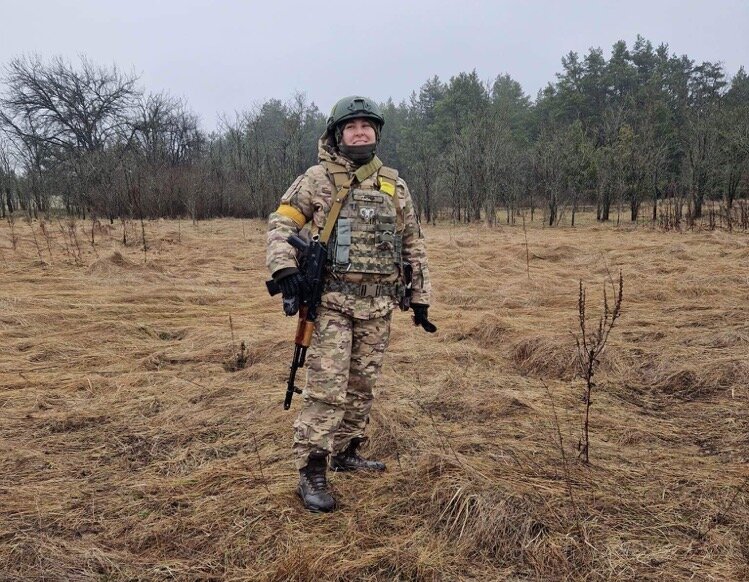
Photo provided by Alina Sarnatska
Do civilian friends who remained in Kyiv understand this new you with these army experiences?
Our relations became very different. In the early stage of the war our unit fought hard in Kyiv region, in Moschtschyn, Irpin. We sustained heavy losses. Everyone asked themselves the same questions: Where am I? How did I get here? About 30% of my volunteer unit members were left by their spouses. 95% were fired by their employers. I am lucky that my partner is still with me and that my colleagues are still waiting for me to return. They even bought me a new office desk! Last time I took a vacation, I came to my office, when my team was having an office meeting. Everyone started praising me, and I was shocked and humbled by that. Being praised is not what you are used to in the army. Instead, your army supervisor mostly criticizes you, and your peers make fun of each other as a means of psychological survival. I was terrified when my former colleagues started praising me: Why do they do that?
What is your experience as a woman in the military?
This is the kind of question I am asked very often. When the civilians approach the army from outside, they often see it differently, compared to what you see from inside. People often wonder if I ever experienced sexism in the army. Of course, I had! There is this cliché that a warrior is a strong male character with big nuts. A male colleague told me that once, and I asked him if his nuts can help him do anything with his assault gun that I cannot. He shut up and never brought this issue up again. Another instance was when a commanding officer told me: “Women should not be in the army!” I immediately asked back if he just authorized me to leave my position and go home. Naturally he said no! You should understand that many of such issues, which seem to be important from the outside, look differently from the inside.
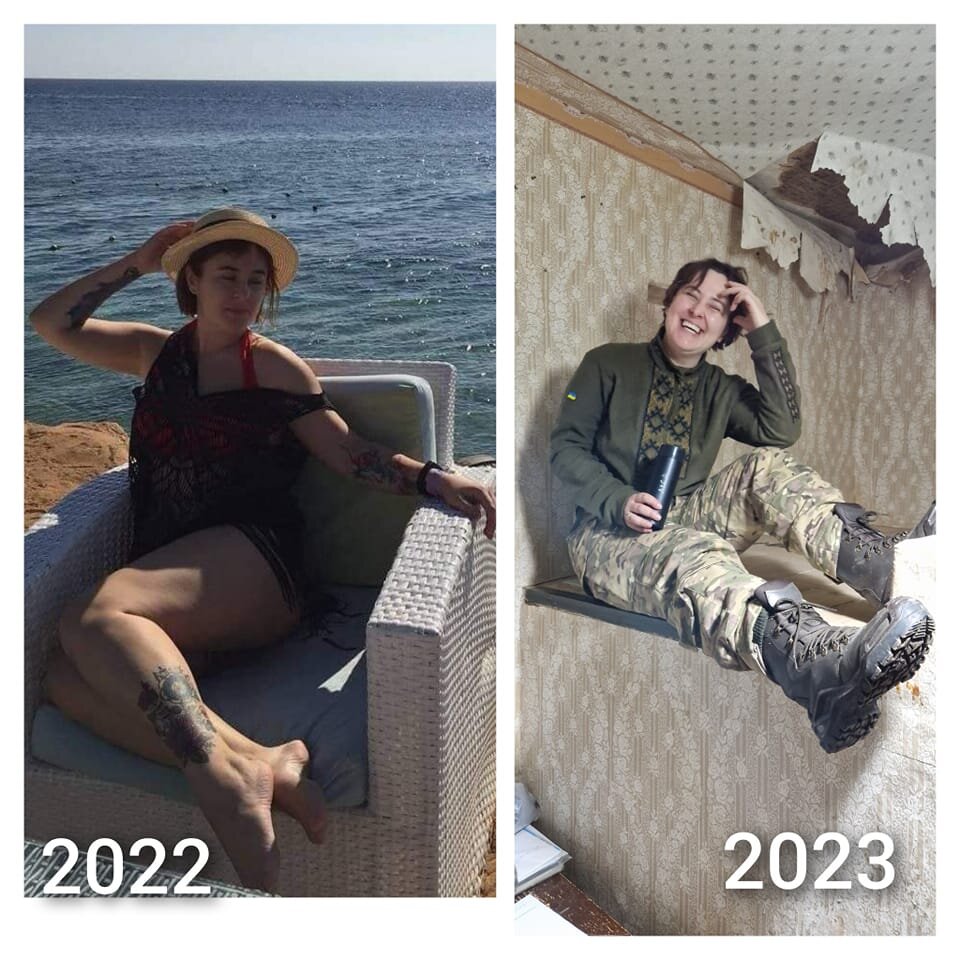
Photos of a soldier Sarnatska before the war and during the war. Photo by Alina Sarnatska
What kind of issues?
Take the situation with uniforms as an example. I hear it regularly: we need female uniforms. It is true, I do need a uniform which fits my body shape. At the same time, if you do not have a female uniform, you can always adjust any available uniform. The real problem is when there is no uniform available at all. When I just joined the army in March last year, I got a pair of warm trousers without a warm jacket, which I got only after several months. Our summer uniform arrived in the middle of July. This was the moment is when I learned that summer thermal underwear exists. Another example is having the proper military body armor. At the beginning we did not have the proper military body armor. We only had police body armor which protect you only from knives or pistols. Now there are talks that female soldiers need light body armor with ceramic plates. But don’t male soldiers need it too? When they wear heavy steel plates, they harm their backs the same way as women do! Yes, we do need support with supplies of fitting body armor, uniform and other things, but this support should not be limited to calls for providing female soldiers with special equipment. Unfortunately, I do not see many activists willing to do that.
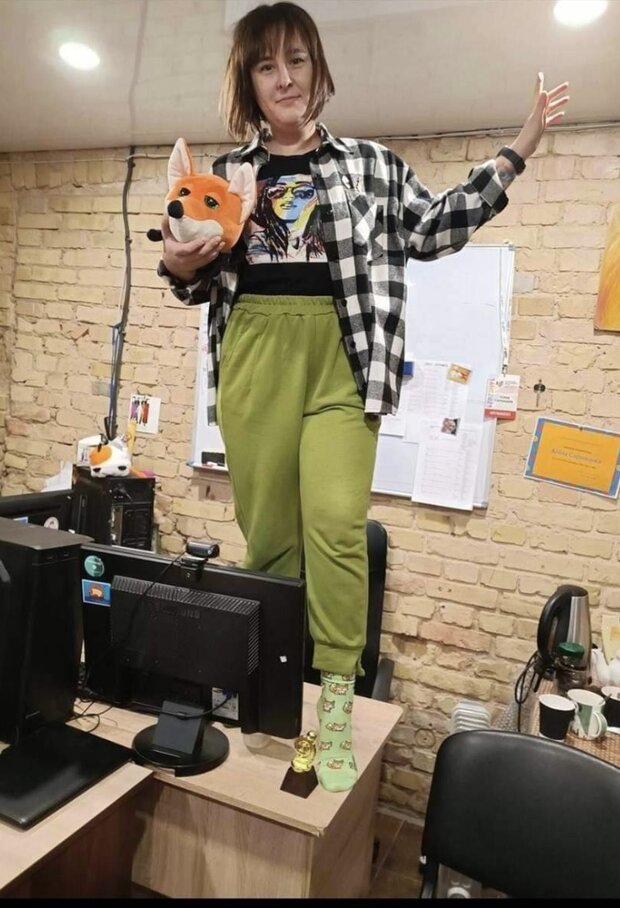
The office life before the war was different at the NGO. Photo provided by Alina Sarnatska
From the outside, there is an impression that the Ukrainian army has an enormous level of support nowadays.
There is some level of support. The army is being regularly helped by such initiatives as Arm Women Now, Zemlyachki Ukrainian Front, Leleka Foundation. I myself regularly donate to these organizations. These initiatives provided us with fantastic medical equipment, for example, vented chest seals. They help seal pierced lungs. These TacMed devices are valued more than gold here! Another example is hemostatic devices to control bleeding from a gunshot wound. When you stick a tampon in a wound with just your bare hands, it causes a lot of pain for this soldier. But there is a high-tech device allowing to stop bleeding without causing any pain. It is all needed here, but these devices are expensive and rare. Another problem is that the majority of people know very little about the army and its problems. I, myself, was this way prior to the invasion. I had no interest in the army, no veteran friends. Yes, I took part in the Maidan Revolution in 2014, but I simply brought sandwiches to protestors. That fight for independence was not a life-or-death fight for me. Back then, I even only spoke Russian. I did gradually switch to Ukrainian, but much later than the Maidan Revolution took place. Moreover, I did not even believe that the state was a necessary construct. I dreamed about the world without borders, without nations, without small communities and identities. I came to the Maidan protest not to fight for the Ukrainian nation, but because I saw the unfairness of the Yanukovich regime. Even when I started working for the political party, I did not fully understand its common objectives. The only thing I wanted was to help victims of domestic violence, but I have never donated to the army. This sterile world of mine ended abruptly on the 24th of February, when I heard a first Russian explosion from my kitchen. This was a turning point for me.
How can people help you and your unit?
We need weapons the most. If you cannot send weapons, send us tactical medicine equipment. Our priority number two is drones. You can also help us with cars and generators. Only after that I would ask for uniforms and other clothes.
Thank you, Alina!
To donate for purchases of tactical medicine equipment for Ukraine’s armed forces: